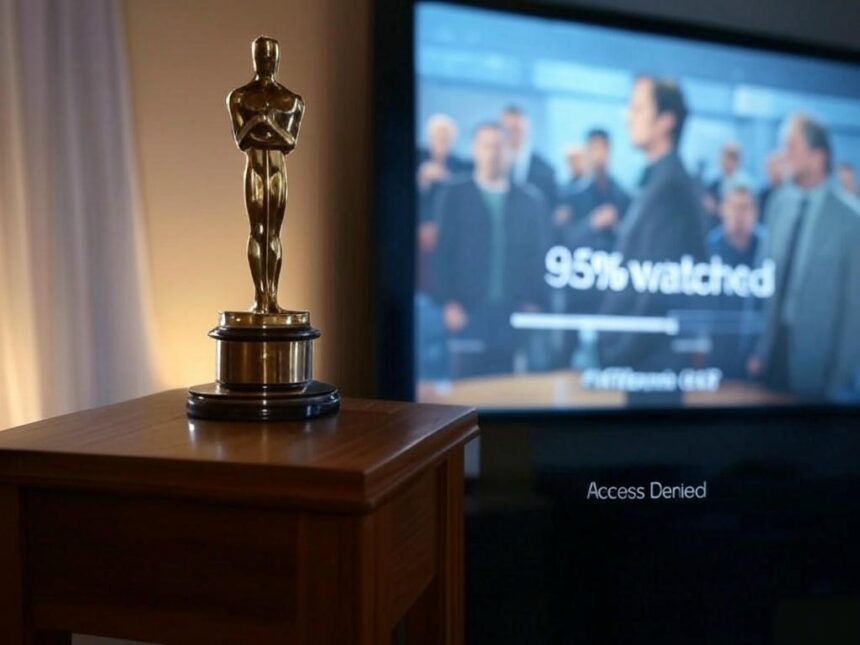Nothing says “prestige” like judging a movie you haven't watched.
And yet, for decades, that's exactly how the Oscars operated—more rumor mill than review board. But now, the Academy of Motion Picture Arts and Sciences has finally decided to close the curtain on one of its most criticized open secrets: voting without viewing.
As of Monday, ahead of the 98th Academy Awards in March 2026, the Academy announced a major overhaul: voters will only be allowed to vote in a category if they've proven they've watched all the nominated films. This isn't a polite suggestion. It's system-enforced. Think Netflix, but instead of “Are you still watching?”, it's “Prove it or lose your vote.”
The new enforcement mechanism? The Academy's members-only Screening Room app will now track viewings. If you watch the films elsewhere—at a theater, a festival, a friend's private screening with wine and smugness—you'll have to manually submit a form logging your experience. Low-tech honesty meets high-tech enforcement.
This is the Oscars' version of a sobriety test. And it's long overdue.
Here's the uncomfortable truth:
Oscar voters have openly admitted (anonymously, of course) to skipping contenders they just didn't feel like watching. In the last awards season, some ballots leaked—and it wasn't just ugly, it was embarrassing. Voters proudly declared they refused to sit through films like Dune: Part II or The Brutalist.
Imagine your high school teacher grading your book report without reading the book. That's how film fans and industry insiders have felt for years.
Why this matters now (and not, say, 20 years ago)?
Part of it is tech. The Academy can now digitally monitor what used to be whispered bias. But the other part? Public trust is hanging by a thread. Audiences are tuning out. Ratings are in free fall. And in the age of Letterboxd and Reddit dissections, being caught faking it isn't just lazy—it's lethal.
There's also precedent. In 2016, the BAFTAs flirted with similar restrictions, limiting voting rights to members who opt into a specific chapter—say, Best Director—meaning they'd (presumably) have a clue. The difference? The Oscars now demand actionable proof. That's not just a symbolic gesture. That's a security gate.
But here's the catch:
This rule only applies to the final voting round. So technically, a voter could still sabotage a film's shot at a nomination without ever watching it. The Academy's saying: “We trust you… until it really counts.”
Still, it's a start. A good one.
This rule is like a fitness tracker for taste—finally holding members accountable for more than just showing up.
And sure, some will grumble. (“You expect me to watch all ten movies?”) But if we're calling this Hollywood's most prestigious award, then yes—yes we do.
Would you trust a food critic who only tastes the breadsticks? Exactly.











